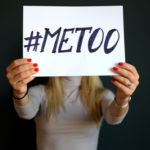Has the Depp v Heard Trial Damaged the #MeToo Movement?

The high-profile defamation trial between Johnny Depp and his former wife Amber Heard saw the dirty laundry of each party aired to the world – the former’s alleged drug and alcohol abuse, disturbing text messages and destruction of property, and the latter’s seemingly mean, abusive, narcissistic and at times bizarre conduct, as well as her propensity to tell less than the truth.
The jury of seven in Virginia heard all sorts of evidence about the pair, which included Mr Depp drinking whisky from as early as 8am, using illicit drugs including cocaine and ecstacy, hitting and throwing clothes and furniture, writing nasty text messages about his then wife and turning up late to set.
It saw heard audio recordings of Ms Heard’s admissions to ‘hitting’ Mr Depp, saw and heard recordings of her mocking and belittling him while he was in an intoxicated state, heard evidence that she threw a vodka bottle which severed his middle finger requiring surgeries and months of rehabilitation, that he would – in Ms Heard’s recorded words – ‘run away’ or lock himself into the bathroom when she became abusive towards him, and how she defecated on his bed.
In terms of eyewitnesses to the alleged incidents, Ms Heard’s legal team presented her sister, Whitney Henriquez, who partly corroborated Heard’s version of events in respect of an occasion whereby Mr Depp allegedly became violent.
By contrast, Mr Depp’s legal team presented a long list of eyewitnesses and those who attended premises or observed the parties in the aftermath of alleged incidents – including the owner/manager of the trailer park where Mr Depp allegedly sexually assaulted Ms Heard, police officers who attended after alleged incidents, security officers, doctors, former friends and employees of Ms Heard – who strongly supported Mr Depp’s assertion he was not physically violent towards Ms Heard, that Ms Heard did not sustain injuries as claimed, that she was the aggressor and violent party during the relationship and that she has a compulsion to lie to further her own interested.
Video recordings were played in court which showed the extent to which Ms Heard tells untruths to garner adoration, support and sympathy, including a recording of her on a German television station where, on a panel, she claimed to have donated to two charities all $7 million paid to her by Mr Depp in their divorce settlement.
That statement garnered adoration from the panel chair and applause from the audience. She did not, in fact, donate that money as claimed and, during her cross-examination in court, Ms Heard repeatedly tried to justify her statements.
Indeed, Ms Heard was caught out during cross examination on, not just her compulsion to lie about extraneous but nonetheless important matters to garner adoration, but on multiple untruths about alleged events central to the case.
In the eyes of many, parts of her testimony amounted to the criminal offence of perjury.
By contrast, Mr Depp appeared to ‘own his mistakes’, admitting to his drug and alcohol use, his stints in rehabilitation, that there were times he became angry and sent nasty messages following arguments with Ms Heard, and so on.
But he was adamant about one thing – he never physically let alone sexually assaulted Ms Heard, and the evidence bore this out.
Indeed, despite Ms Heard having a tendency to record the pair’s conversations and video record Mr Depp in various vulnerable situations, there was no direct evidence nor any form of admissions by Mr Depp whereby in recording, messages or any other communications of any such assaults, nor any medical evidence or reports of Heard’s alleged injuries despite having around the clock access to personal medical professionals.
The article
But let’s take a step back – what’s this all about?
Mr Depp commenced defamation proceedings in response to Ms Heard’s opinion piece published in The Washington Post newspaper and its online version on 18 December 2018 which – two years after applying for a temporary restraining order when Mr Depp had just left the country on a tour – which contained the following statements:
- “I spoke up against sexual violence — and faced our culture’s wrath. That has to change”,
- “Then two years ago, I became a public figure representing domestic abuse, and I felt the full force of our culture’s wrath for women who speak out”, and
- “I had the rare vantage point of seeing, in real time, how institutions protect men accused of abuse.”
Mr Depp claimed that his life was ‘completely destroyed’ as a result of these statements, painting him as a domestic and sexual abuser, causing him humiliation, emotional damage, affecting his relationship with his children and loved-ones, and leading to him being ‘cancelled’ by Hollywood.
He sued Ms Heard for $50 million for the damage caused.
Ms Heard countersued for $100 million over three statements made by Mr Depp’s former attorney Adam Waldman, who told made the following statements to the UK’s Daily Mail newspaper:
- Amber heard and her friends in the media used fake sexual violence allegations as both a sword and shield depending on their needs. They have selected some of her sexual violence hoax fact as a sword inflicting them on the public and Mr Depp”,
- “Quite simply this was an ambush, a hoax. They set Mr Depp up by calling the cops but the first attempt didn’t do the trick… The officers came to the penthouses, thoroughly searched and interviewed, and left after seeing no damage to face or property. So Amber and her friends spilled a little wine and roughed the place up, got their stories straight under the direction of a lawyer and publicist, and then placed a second call to 911”, and
- “We have reached the beginning of the end of Ms Heard’s abuse hoax against Johnny Depp”.
The verdict
After hearing the judge’s directions on the law, the jury unanimously found that Mr Depp has discharged his legal onus to prove that each of Ms Heard’s statements amounted to defamation, awarding him $10 million in actual damages and $5 million in punitive damages – the latter being to punish Mr Heard for her conduct.
The jury found that statements 1 and 3 by Mr Waldman did not amount to defamation, but the second statement – whereby the lawyer essentially (and perhaps irresponsibly) claimed that Ms Heard and her friends had fabricated a crime scene, did amount to defamation. Indeed, there was little if anything to support the lawyer’s words.
The jury awarded Ms Heard $2 million on her counterclaim. It did not award punitive damages, and it is notable that it did not find that statements 1 and 3 – which alleged that Ms Heard’s claims were ‘fake’ and a ‘hoax’, were defamatory, leading to an inference they were supported by the evidence.
The verdict sent a strong message that Mr Depp was not a domestic or sexual abuser; in other words, that Ms Heard’s claims against him were false.
Public reaction
The publicity surrounding the case saw the #justiceforjohnny movement go into overdrive.
Ms Heard gave evidence in court that she has been subjected to threats on a daily basis, including death threats, a petition to have her part in the already-filmed movie Aquaman 2 deleted has garnered over 4.5 million signatures, and there are reports she has now retreated to her ‘secret desert hideout’ to escape the abuse.
The vitriol expressed by people from all walks of life against Ms Heard has been brutal and relentless, and in the eyes of many unnecessary, unwarranted and unfair.
Indeed, there can be no excuse or justification for such conduct – despite how Ms Heard may be perceived as a result of the trial.
But the broader question that may be asked is: has the publicity surrounding the trial damaged the #MeToo movement by potentially making it less likely that genuine survivors of physical or sexual will speak out about their victimisation?
Potential impact on genuine victims
Victims’ rights campaigners have called the day of the verdict, 1 June 2022, a “bad day for women who are victims” and the verdict itself a “sad outcome for victims”.
They have expressed concerns that the vitriol targeted at Ms Heard, the crippling damages award against her and the potential ‘cancelling’ from Hollywood serve as a warning that those who speak out or report actual sexual or domestic violence offences will be disbelieved and even vilified, and that the voice of #MeToo has been suppressed as a result of the trial.
Logically speaking, this should not be the case as the evidence presented at trial suggests that Ms Heard was not a genuine victim of the crimes alleged against her former husband. But consequences are not always based on logic.
In terms of suppressing the voice of those speaking in support of complainants, we posted an article to social media in 2017 titled False Domestic Violence Complaints Ruin Lives and another in 2018 titled False Sexual Assault Allegations Ruin Lives; while the #MeToo movement was in full swing.
The bulk of the public reaction to those articles was brutal, with social media commenters describing them “shameful”, “disgusting”, “irresponsible”, stating that all complainants must be believed. We received multiple threats to report us to the Law Society over the articles.
Very few comments were supportive of the articles which, in our minds, are factual, well-supported and commonsensical – indeed, false domestic and sexual assault claims do exist and do ruin lives, and being falsely accused of a crime can even lead to suicide.
We reposted both articles to social media in the wake of the recent verdict, to a very different reaction – with the bulk of commenters were supportive of the articles will virtually no one critical of them.
And while this may be simply an anecdote, it is one that suggests a degree of change in how the situation regarding complaints is perceived – and perhaps even some form of acceptance that false complaints do exist and can impact on those who are falsely accused.
But is this a good thing?
That said, let’s hope that while the recent trial does serves as an acknowledgement that such situations exist, it does not contribute to genuine victims remaining in abusive relationships, or speaking out and reporting the violence committed against them.
Indeed, domestic abuse and sexual violence are very real problems in societies around the globe and genuine victims must be heard and supported, while perpetrators should face the potentially devastating and permanent impact of their actions.






